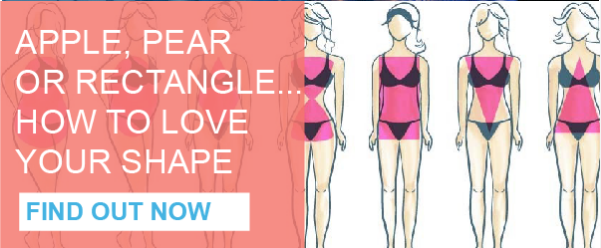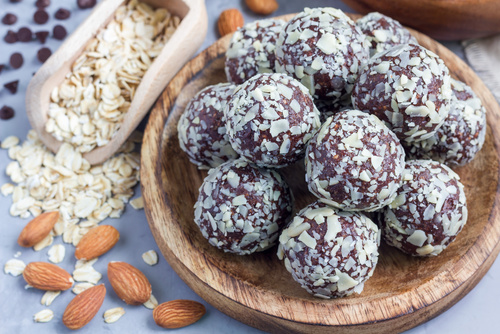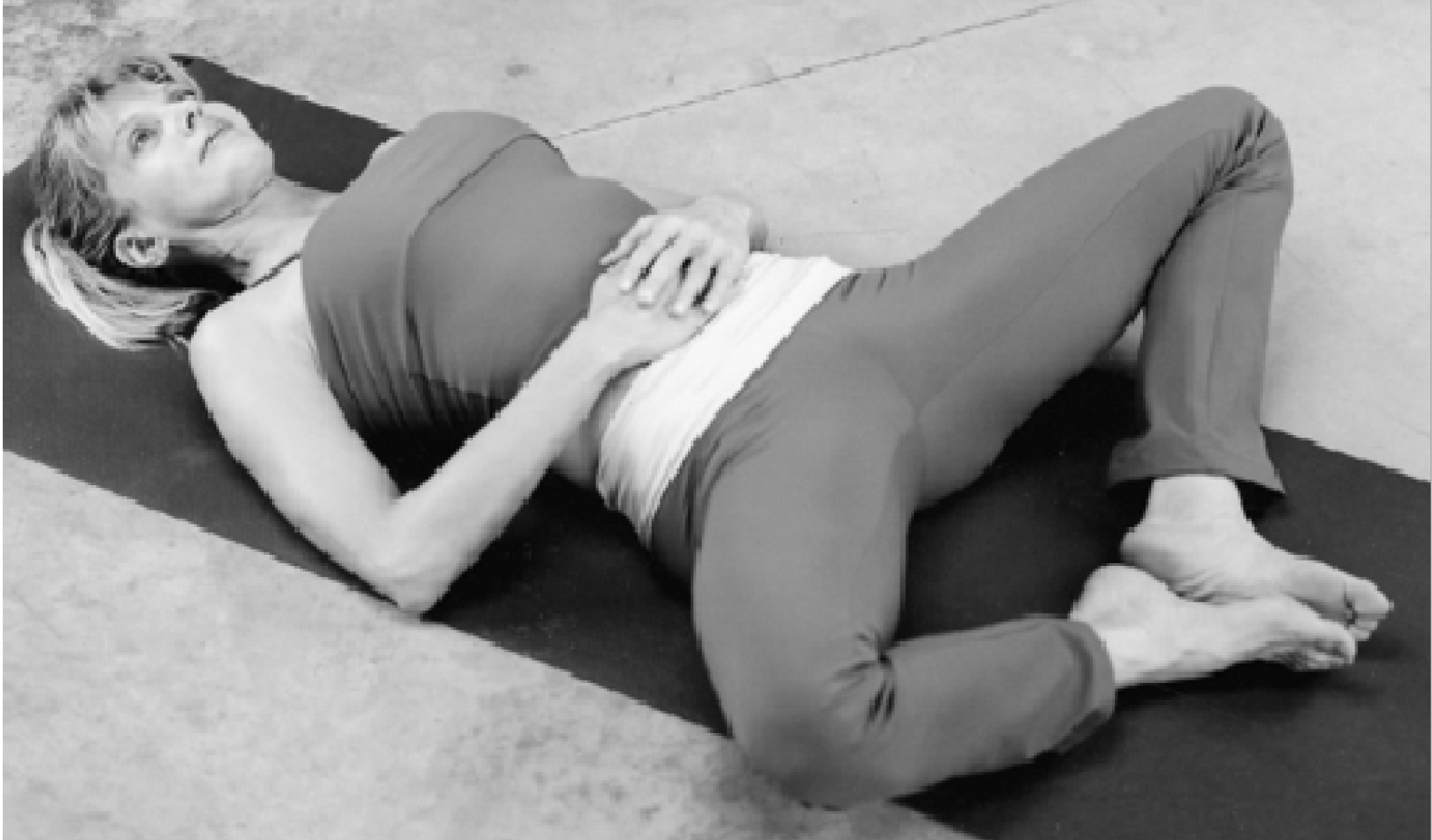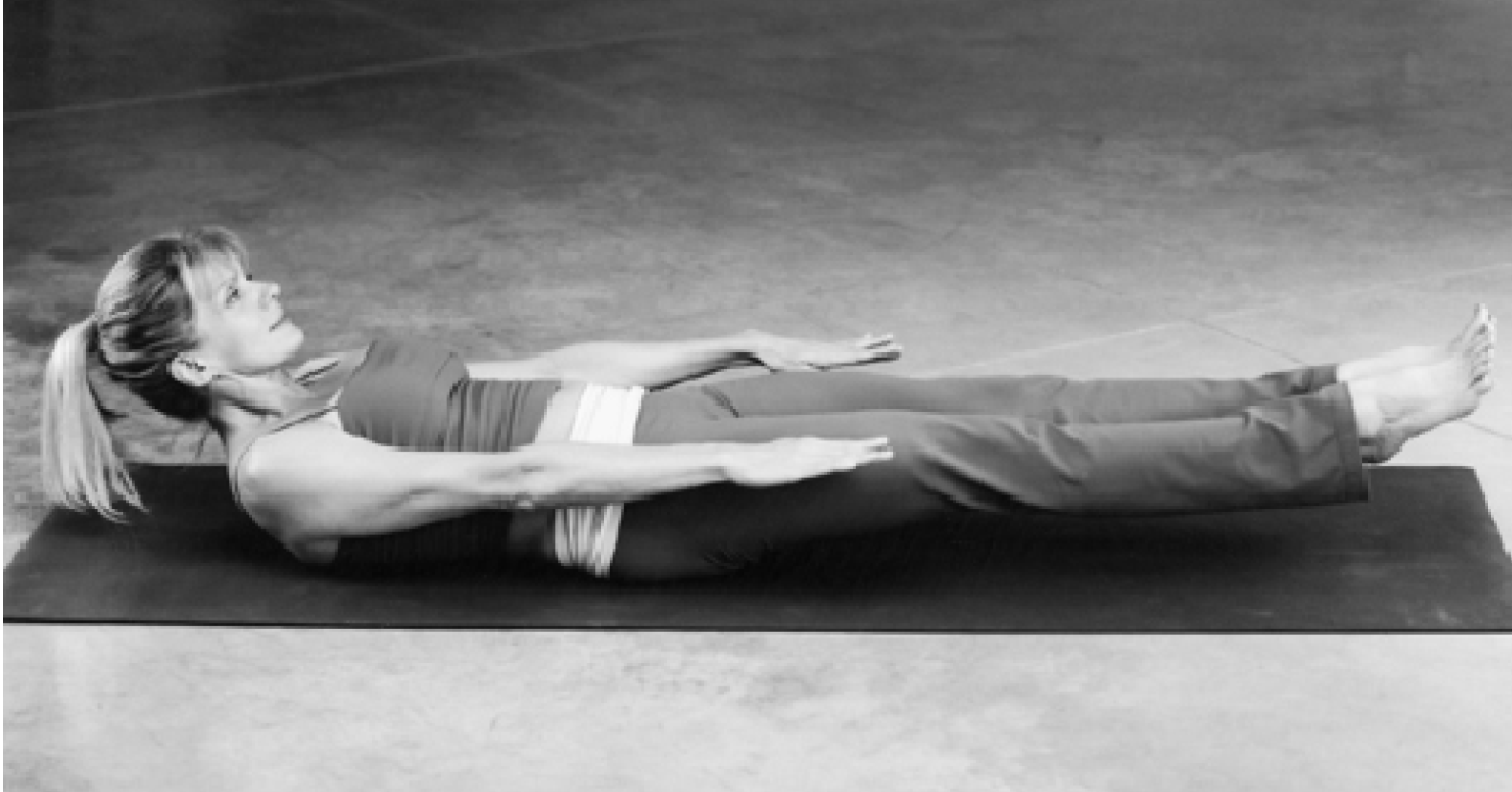The Best Workout For Your Body Type
by Kathy Smith
We come in all shapes and sizes. The system of body types (also called somatotypes) commonly used in scientific and medical circles was developed in the 1950s by W. H. Sheldon and provides a convenient way of classifying the structural and performance differences between people. According to this system, there are three basic types: the slender ectomorph, the athletic mesomorph, and the soft endomorph. Each has its strengths and limits.
Most people don’t fit perfectly into any one type. However, as you read through the descriptions, I’ll bet you’ll be able to relate characteristics of one or more types to yourself or someone you know.
The Ectomorph: Thin, Little Fat or Muscle
 Ectomorphs have long, narrow, lean, lithe, angular bodies. Their muscles and connective tissues are loose, allowing more flexibility and mobility than other body types, and this general looseness and lack of muscle makes them more likely to have poor posture. Proportionately, ectomorphs are fine-boned, with narrow shoulders, a flat chest, and long limbs. What little fat they carry accumulates in the hips and thighs.
Ectomorphs have long, narrow, lean, lithe, angular bodies. Their muscles and connective tissues are loose, allowing more flexibility and mobility than other body types, and this general looseness and lack of muscle makes them more likely to have poor posture. Proportionately, ectomorphs are fine-boned, with narrow shoulders, a flat chest, and long limbs. What little fat they carry accumulates in the hips and thighs.
Ectomorphs tend to have inefficient cardiovascular systems and may have problems with low blood pressure, high heart rate, poor circulation, dizziness on standing, and poor endurance. They gain muscle slowly and with difficulty.
A well-developed and efficient nervous system makes ectomorphs highly sensitive and adept at activities requiring speed of movement. On the other hand, they have inefficient digestive systems, which helps them to stay thin but may leave them prone to hypoglycemia. There’s also some evidence that ectomorphs may be particularly susceptible to low back pain and osteoporosis.
The Mesomorph: Athletic and Muscular
 Mesomorphs are high-energy people, with high levels of adrenaline and an efficient cardiovascular system. In general, they excel at strength and endurance activities and, men especially, tend to bulk up when they lift weights.Mesomorphs are nature’s athletes, with hard, muscular bodies and a solid, square appearance. They’re sturdily built, and their tight, short muscles and strong connective tissue give them a very upright posture, but limit their flexibility. They’re medium-to-large-boned, with shoulders broader than hips, short torsos, and a well-proportioned distribution of weight.
Mesomorphs are high-energy people, with high levels of adrenaline and an efficient cardiovascular system. In general, they excel at strength and endurance activities and, men especially, tend to bulk up when they lift weights.Mesomorphs are nature’s athletes, with hard, muscular bodies and a solid, square appearance. They’re sturdily built, and their tight, short muscles and strong connective tissue give them a very upright posture, but limit their flexibility. They’re medium-to-large-boned, with shoulders broader than hips, short torsos, and a well-proportioned distribution of weight.
Depending on their diet and activity level, mesomorphs can gain or lose weight easily. Although they get into shape quickly and can eat large amounts of calories as long as they stay active, they can also lose muscle quickly and gain fat through lack of training. When they’re inactive, their blood pressure and heart rate rise. That, combined with a greater concentration of fat near the middle of the body, makes them more prone to heart disease and stroke.
The Endomorph: Excess Body Fat
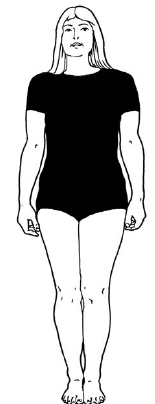
Endomorphs have soft, rounded, naturally curvy bodies, with excess body fat and underdeveloped muscles. Their shoulders are slightly wider than their hips, but this often goes unnoticed because they carry excess fat at their waist, buttocks, and thighs. Their posture is fairly good, and their muscles and cardiovascular system are more efficient than those of the ectomorph, though less so than the mesomorph. This gives them natural potential for strength, endurance, and flexibility. However, an overly developed digestive system and a naturally low metabolism cause them to gain weight easily and lose it slowly. The endomorph usually has a slow heart rate and low blood pressure, and can relax and fall asleep easily.
Mix and Match
You hardly ever see anyone who is a perfect ecto, meso, or endo. Most of us have traits of at least two types: Usually, we tend toward one while having traces of the others. A good pole vaulter, for instance, might be an ecto-meso, since long limbs (ectomorph) are desirable for speed and grip height, while strong upper body muscles (mesomorph) are important in levering the body over the bar.
I classify myself as an ecto-meso. Although I have the mesomorph’s capacity to gain muscle and be athletic, my body’s natural tendency is toward thinness.
By the way, other physical characteristics such as height, weight, or fitness level do not affect what type you are. You can be a meso, ecto, or endo of any dress size. Likewise, exercise won’t change your body type. You might go from an overweight endomorph to a more slender one; from a willowy ectomorph to a more contoured one, but the changes you experience will occur relative to your own physiology.
Body Type Self-Test
Here’s a quick way to gauge your body type: Take the middle finger and thumb of one hand, and encircle the wrist of the other hand. This is a simple way of making a length-versus-width comparison of the bones in your body. This ratio gives a clue as to which category you might fall into:
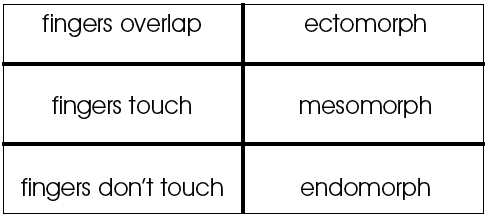
Ectomorphs, endomorphs, and mesomorphs are like that game of rock, paper, scissors. Each can do something the others can’t, so there’s no better or worse type to be. And since your type was decided before you were born, your only job now is to accept and enjoy your body for its unique abilities, and learn to make the most of them.
The Mesomorph Myth
There seems to be a bias in our society in favor of the mesomorph. Most people feel that a more muscular, proportional physique is the ideal. The bias doesn’t stop there, though. Studies show we actually judge people with meso physiques more favorably than others.
In one experiment, a group of psychotherapists and grad students at Midwestern State University were shown drawings of three clients’ body types. Based on nothing but the outlines of the bodies, the subjects rated the clients according to various personal characteristics. Students and professionals alike all rated the mesomorphs more favorably than the others.
It’s true that mesomorphs have a definite edge in most physical pursuits. However, looking beyond athletics, the other body types have edges of their own. An ectomorph’s highly active nervous system may make her an exciting concert violinist. Likewise, an endomorph’s slow, relaxed demeanor may make her a more approachable and reassuring presence as a school counselor.
Even in the physical realm, though, each type has its strengths. The strengths and limitations of your body type (as well as your individual goals) help determine the type of training that’s right for you.
Here’s a summary and some training recommendations…
Training Considerations for Each Body Type
My program is designed to help everyone—no matter how you’re built—develop strength, cardiovascular endurance, and flexibility. However, two people can have very different responses to the same training program. It helps to be as familiar as you can with your own body’s natural tendencies, so you know how to focus your efforts and assess your progress.
Ectomorph Focus
If you’re an ectomorph, you may have memories of leaving most of your elementary school classmates in the dust in the 50- yard dash. Ectomorphs are good sprinters, can become very flexible, and excel at sports involving quickness and agility. They’re not gifted in the strength or endurance departments, however, and while they don’t usually need to work to stay thin, they do need to work to stay strong.
The Role of Strength Training:
Ectomorphs need strength training to improve posture, create contour, protect joints from injury, and keep bones strong against osteoporosis.
While the ecto can improve muscle strength and endurance, the improvements may not be as great or come as fast as with the other types. An ectomorph trying to build muscle may feel at times like someone trying to grow vegetables in the desert. This is all the more reason why it’s so important for ectomorphs to train, and train consistently.
As for other aspects of training, ectos can usually maintain flexibility with minimal effort. And because they are often high-strung, they may benefit from relaxation and stress-reduction techniques.
Mesomorph Focus
If you’re a mesomorph, you’ve probably done well at most physical activities you’ve tried. If you haven’t been very active up to this point, you’ll probably find that your body responds quickly to training. Excess weight shouldn’t be a problem as long as you stay active and eat sensibly. Because mesomorphs tend to carry fat around the center of the body, they face a greater risk of heart problems than other types if they allow their weight to climb. The right combination of strength training, cardio, and a low-fat diet will minimize this risk and keep you looking your best.
The Role of Strength Training:
Your challenge is to find a level of strength training that allows you to tone up without building more muscle than you want. Weight lifting is a must for fighting age-related muscle loss and keeping your weight down, but you may want to do it at a lower intensity (using lighter weights, according to the guidelines in Chapter 5) to avoid building unwanted bulk. Since your muscles and connective tissues tend to be tightly strung together, you’ll probably need to spend extra time stretching in order to stay flexible.
Endomorph Focus
If you’re an endomorph, you may have memories of bringing up the rear when your classmates ran the track. Physical activity does not come easily for you, and you may find physical challenges frustrating. The main difficulty, though, is usually excess weight. Endomorphs, because of their tendency to store fat, may not seem to be natural athletes. But, surprisingly, they have the potential to develop strength and endurance more easily than the ectomorph.
With proper training, there’s no reason an endomorph can’t be toned and fit. Endos may tend to be a bit more voluptuous than other body types, but it’s possible to be voluptuous and be in great shape!
The Role of Strength Training:
The endomorph’s big challenge is her constant struggle with excess weight. Aerobic work, attention to diet, and strength training will all help. Strength training is vital, and will accomplish two things: First, it will help strengthen your joints and connective tissues to make your cardio work easier and less stressful. And second, it will help raise your metabolism so you can burn fat that much faster. Over the long run, you may want to do a little extra work on your upper body to help create a more symmetrical look. When it comes to cardio, start with low-impact varieties to minimize stress on the joints: good choices include walking or treadmill, swimming (or aqua aerobics), low-impact aerobics, bicycling on fairly level ground, or a stationary bike with low tension.
Kathy Smith, New York Times bestselling author, has stood at the forefront of the fitness and health industries for over 30 years. The numbers speak for themselves: Kathy has sold more than 20 million exercise DVDs - landing her in the Video Hall of Fame - and $500 million in Kathy Smith products. With her revolutionary approach to fitness, Smith has touched millions of people, inspiring them to move, live, and love.
